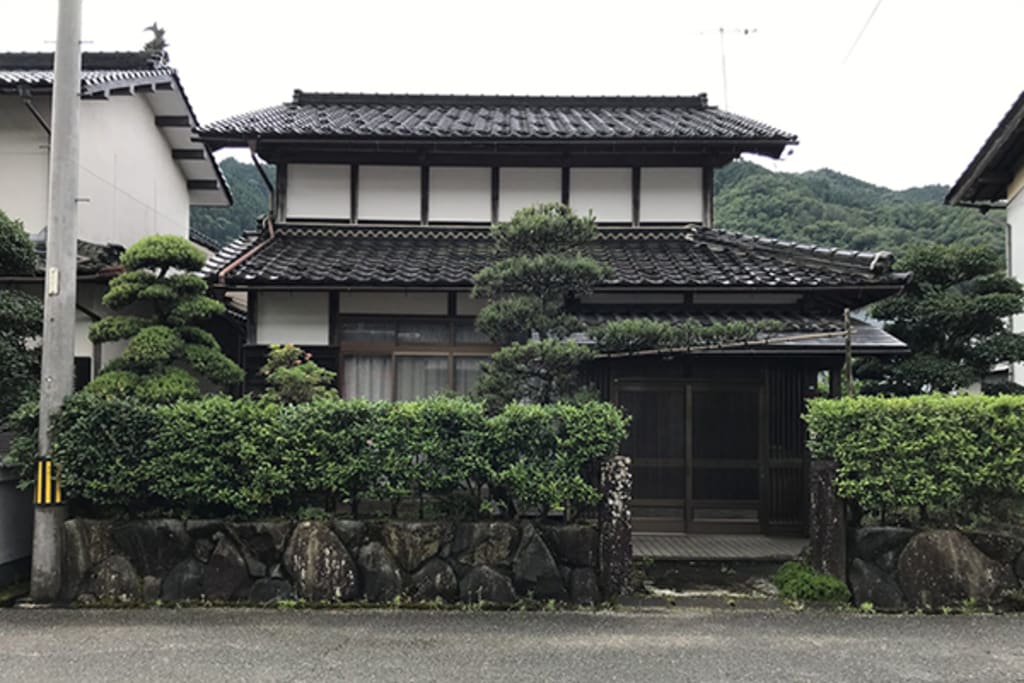Japan's Abandoned Homes: Offering Free Housing Opportunities
Unlocking Hidden Treasures: Exploring Akiya

Japan is known for its high cost of living and expensive real estate market. However, in recent years, there has been a growing trend of free houses in Japan.
These are abandoned or vacant properties that are being given away for free or at a very low cost.
This phenomenon has caught the attention of many people, both local and international, as it offers a unique opportunity to own a house in one of the most developed countries in the world.
In this article, we will explore the concept of free houses in Japan and why they are becoming increasingly popular.
The concept of free houses, or 'akiya' in Japanese, is not a new phenomenon in Japan. It has existed for many years, but it has gained more attention in recent years due to the country's aging population and declining birth rate.
As a result, many rural areas in Japan are facing a declining population, leading to a large number of abandoned houses. These houses are left vacant as their owners either move to the cities for better job opportunities or pass away without any heirs to inherit the property.
The Japanese government and local municipalities have been trying to address this issue by offering incentives to attract new residents and revitalize these areas.
One of the incentives is the 'akiya bank' system, where local governments list all the abandoned houses in their area and match them with potential buyers.
These houses are usually offered for free or at a very low cost, as the local government is more interested in bringing in new residents rather than making a profit.
But why would anyone want to live in an abandoned house? The answer lies in the potential of these properties. Many of these houses are located in scenic rural areas, surrounded by beautiful landscapes and nature.
They also tend to be larger and more spacious than the average Japanese house, making them ideal for families or people looking for a change of pace from the cramped city lifestyle.
Moreover, as these houses are usually older, they are built with traditional Japanese architecture, which adds to their charm and uniqueness.
Another major factor that makes free houses in Japan attractive is the low renovation costs. As these houses have been abandoned for a long time, they require some renovation and maintenance work.
However, due to the declining population and the lack of demand for housing in these areas, the cost of renovation is significantly lower compared to buying a new house in a major city.
This makes it a great opportunity for people who want to own a house in Japan but cannot afford the high prices in urban areas.
Furthermore, free houses in Japan also come with some tax benefits. In some cases, the local government may offer tax breaks to new homeowners as an incentive to revitalize the area.
This can significantly reduce the overall cost of owning a house in Japan, making it even more appealing to potential buyers.
However, there are a few things to consider before jumping on the bandwagon of free houses in Japan. Firstly, not all free houses are in good condition, and some may require extensive renovation work.
It is crucial to thoroughly inspect the property before making a decision, as the cost of renovation and maintenance can add up quickly. Secondly, there may be restrictions on the type of renovations that can be done, as these houses are often located in historical or traditional areas. It is essential to check with the local authorities before making any changes to the property.
Moreover, there may be some cultural and language barriers for non-Japanese buyers. It is advisable to have a local agent or translator to assist in the buying process and navigate any cultural differences.
In conclusion, the concept of free houses in Japan is an attractive opportunity for anyone looking to own a property in this beautiful and developed country. It offers a chance to experience the traditional Japanese lifestyle in scenic rural areas at a fraction of the cost.
However, it is essential to do thorough research and consider all factors before making a decision to ensure a smooth and successful buying process.
With the growing popularity of free houses in Japan, it is a trend that is likely to continue in the coming years, making it an appealing option for those looking for a unique and affordable housing opportunity.






Comments
There are no comments for this story
Be the first to respond and start the conversation.